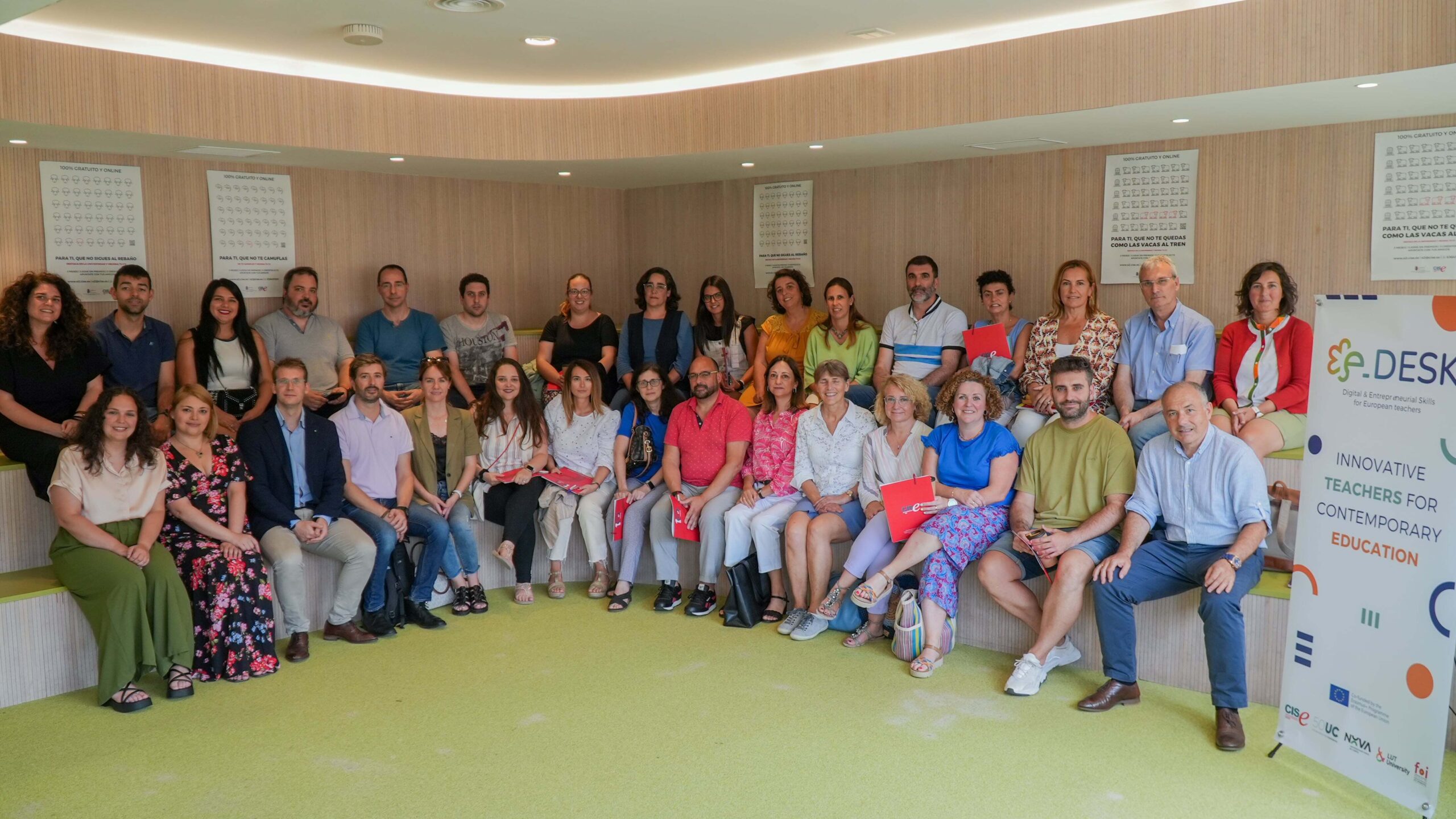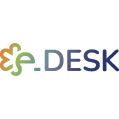
20 Jul Digitalization and entrepreneurship: the future of education under debate at the CISE
Fifty trainers met in the framework of the conference «The Future of Digitalization in Education» to discuss trends and new training methodologies
The meeting took place within the Erasmus+ ‘E-Desk’ program to boost the digital and entrepreneurial skills of European teachers
About 50 trainers and educators met yesterday at the Santander International Center for Entrepreneurship (CISE) in the conference ‘The Future of Digitalization in Education’ organized within the framework of the Erasmus + ‘E-Desk’ program. A space for debate focused on the trends that will mark the teaching in the coming years and the use of educational and pedagogical tools that allow students to acquire key skills in digital transformation and entrepreneurship, necessary for their job prospects.
The event was inaugurated by the executive director of CISE, Manuel Redondo, the director of the International Area of CISE, José Carlos Ceballos, and has had speakers specialized in educational innovation as the National Education Award, Raúl Diego; trainers who have already tested the E-Desk methodology as Alberto Diez Ibarbia, or the promoters of the European project ‘2BDigital’ also oriented to Vocational Training (FP).
Raúl Diego pointed out during his presentation that the «transformative» capacity of digitalization lies in «rethinking methodologies, relying on technology but with the aim of promoting creativity, critical thinking and collaboration among students. We must redefine what we do and how we do it so that the students themselves learn to learn,» he said.
José Carlos Ceballos explained the importance of entrepreneurial and digital skills for students: «in an increasingly globalized and changing environment, students must not only acquire knowledge: they need to work on skills that will be useful throughout their lives».
E-Desk, led by CISE in collaboration with the University of Cantabria (UC), University of LUT, Universidade Nova de Lisboa and University of Zagreb, aims to bridge the digital gap that the COVID-19 pandemic highlighted in the traditional education system. So far, more than 900 trainers have improved their digital and entrepreneurial skills and acquired tools to integrate these skills into their training programs and pass them on to their students.
One of the first trainers to test E-Desk was UC professor Alberto Diez Ibarbia, who described it as «essential» for university students to work on their digital and entrepreneurial skills. «Although they are digital natives, they must acquire these skills because the future will be marked by new technologies. And by combining them with communication and leadership skills, they will be able to differentiate themselves and stand out in an increasingly competitive market,» he said.
Digitalization and entrepreneurship are key priorities in the political agenda of the European Union (EU) to promote innovative societies. In that sense, the EU has developed the European Entrepreneurial Competences Framework, ‘Entrecomp’, and the Digital Competences Framework for Citizenship, known as ‘DigComp’, to point out those key knowledge, skills and attitudes for people.
The World Economic Forum has also cited creativity, leadership, analytical and innovative thinking, reasoning, problem solving and ideation, or the design and use of technologies or programming, among others, among the skills most valued by companies in 2025. All of them, as indicated by the frameworks created by the EU.
In the same sense, Spain has legislated with the LOMLOE a new approach that turns towards teaching from an inclusive and globalized perspective based on key competencies and learning experiences. It seeks to reinforce and work on a series of skills and aptitudes in the new generations from schools: students must learn to make their own decisions, to relate to others, to solve problems, to improve their digital knowledge or to stimulate their creativity.
E-DESK HAS ALREADY TRAINED MORE THAN 900 EDUCATORS.
The e-Desk methodology combines face-to-face and digital learning simultaneously. It contributes to improving the effectiveness of higher education programs and allows teachers to be better prepared to adapt their classes. Ensuring greater accessibility and equal opportunities for students.
The project has detected the key success factors of hybrid educational programs, identified international best practices in entrepreneurial and multidisciplinary education with an online and blended learning approach. Among the materials, free of charge and adaptable to different contexts and classrooms, available to teachers is the construction of a best practices guide, a methodology to help implement new pedagogical processes in the classroom, a digital course and has organized several workshops and pilot experiences. All this has been tested by more than 40 European teachers who have helped to build the resources with their experience.


Sorry, the comment form is closed at this time.